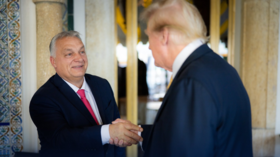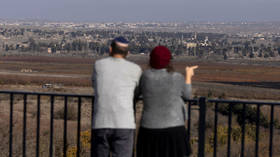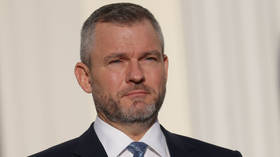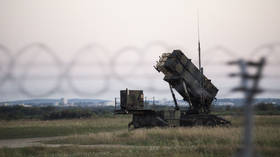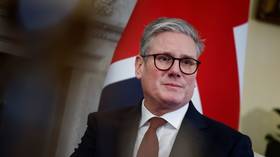South Korea’s ruling party chief steps down
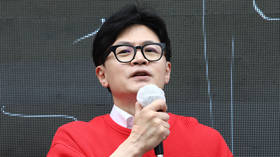
The head of South Korea’s ruling People Power Party (PPP), Han Dong-hoon, has announced his resignation after the impeachment of the country’s president, Yoon Suk Yeol.
The South Korean parliament voted to impeach Yoon on Saturday over his decision to briefly declare martial law in early December, with some members of the president’s PPP party supporting the move.
“I am stepping down as the leader of the People Power Party,” Han said during a press conference at the National Assembly on Monday.
He explained that it has become “impossible” for him to carry out his duties after all five members of the PPP’s Supreme Council expressed their intent to step down in response to Yoon’s impeachment.
“Although I sought alternatives to impeachment, I was unable to find any other resolutions. I am to blame, and I am sorry,” the party leader said.
The PPP boycotted the first vote on Yoon’s impeachment on December 7, hoping to persuade him to step down voluntarily. However, when the head of state refused to do so, Han changed his stance, saying that impeaching Yoon remained the only way to preserve democracy in South Korea.
The PPP leader, who has been in the job since July, said during the press conference that he has “no regrets” over supporting the clampdown on Yoon. The declaration of martial law was wrong and “illegal” even if it “was imposed by a president from our party,” Han stressed.
The PPP’s newly elected floor leader, Kweon Seong-dong, will now become the party’s acting head.
The political crisis in South Korea erupted on December 3 when Yoon delivered a surprise televised address, declaring emergency martial law on the grounds that the opposition – which he accused of being sympathetic towards North Korea – had allegedly been preparing a “rebellion.” He provided no proof to back his claims.
Within hours, 190 lawmakers, who managed to access the National Assembly despite military cordons, voted unanimously to lift the decree. Thousands of people took to the streets to condemn the president’s actions.
Less than six hours after imposing martial law, the head of state announced that he had decided to retract his decision.
Last week, Yoon, who faces an investigation over possible insurrection, defended the declaration of martial law, calling it a “highly calibrated political judgment.” He promised to “fight” attempts to impeach or investigate him.
On Monday, South Korea’s Constitutional Court began reviewing the president’s impeachment in order to decide if he should be removed from office. Investigators earlier said that they plan to question Yoon this week.




